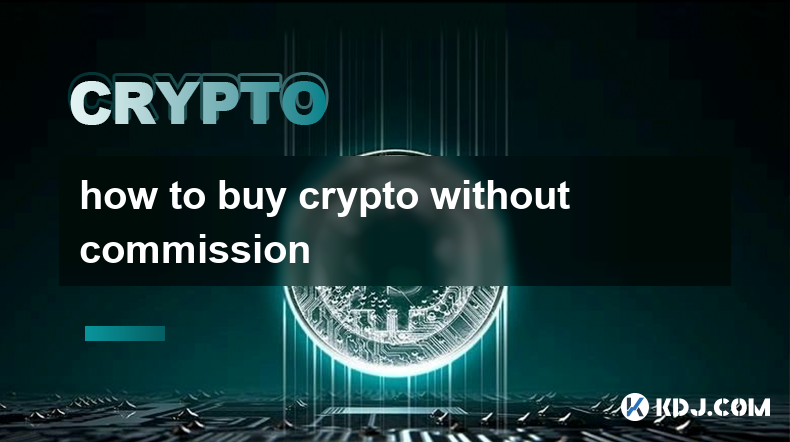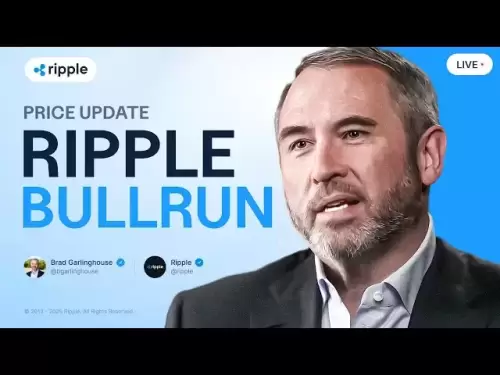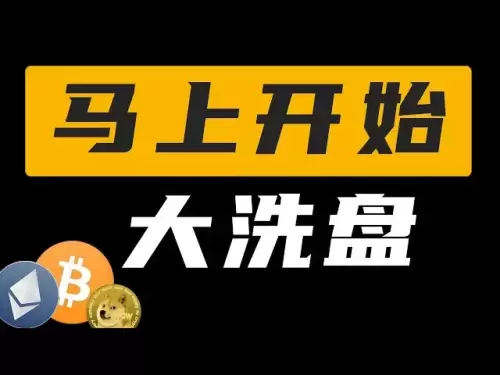-
 Bitcoin
Bitcoin $105,593.4578
-0.14% -
 Ethereum
Ethereum $2,501.8980
2.34% -
 Tether USDt
Tether USDt $1.0002
0.00% -
 XRP
XRP $2.3753
-0.92% -
 BNB
BNB $650.1803
0.52% -
 Solana
Solana $165.8921
-2.27% -
 USDC
USDC $0.9998
0.02% -
 Dogecoin
Dogecoin $0.2233
-1.98% -
 Cardano
Cardano $0.7411
-0.98% -
 TRON
TRON $0.2657
-0.31% -
 Sui
Sui $3.8277
-0.27% -
 Chainlink
Chainlink $15.7026
0.68% -
 Avalanche
Avalanche $22.0958
-2.17% -
 Stellar
Stellar $0.2856
-1.25% -
 Hyperliquid
Hyperliquid $26.4052
-0.73% -
 Shiba Inu
Shiba Inu $0.0...01452
-0.89% -
 Hedera
Hedera $0.1921
-1.05% -
 UNUS SED LEO
UNUS SED LEO $8.6233
-0.57% -
 Bitcoin Cash
Bitcoin Cash $390.8852
-3.19% -
 Toncoin
Toncoin $3.0165
-3.60% -
 Litecoin
Litecoin $98.2319
-0.87% -
 Polkadot
Polkadot $4.5759
-2.38% -
 Monero
Monero $340.9802
0.79% -
 Bitget Token
Bitget Token $5.1849
0.62% -
 Pepe
Pepe $0.0...01319
-0.78% -
 Dai
Dai $0.9998
0.00% -
 Pi
Pi $0.7365
-1.18% -
 Ethena USDe
Ethena USDe $1.0003
-0.04% -
 Uniswap
Uniswap $5.9124
-0.67% -
 Aave
Aave $239.5629
5.86%
how to buy crypto without commission
Utilize crypto exchanges such as Binance, Gemini, and Robinhood Crypto for commission-free trading on popular cryptocurrency pairs, enabling cost-effective entry into the crypto market.
Jan 31, 2025 at 02:55 am

How to Buy Crypto Without Commission: A Comprehensive Guide
Key Points
- Explore various exchanges that offer commission-free crypto trading.
- Utilize peer-to-peer (P2P) marketplaces for direct transactions.
- Take advantage of cashback and loyalty programs to reduce trading expenses.
- Understand the concept of liquidity and how it impacts commission-free trading.
- Utilize technology to optimize your crypto trading strategies.
Ways to Buy Crypto Without Commission
1. Crypto Exchanges with Commission-Free Trading
- Binance: The largest crypto exchange by trading volume offers commission-free trading for spot BTC pairs.
- Gemini: A reputable exchange known for its security and compliance standards, offering commission-free trading on select stablecoins paired with USD.
- KuCoin: A popular exchange among experienced traders, providing commission-free trading for maker orders on selected pairs.
- Robinhood Crypto: A user-friendly app-based platform that offers commission-free trading on popular cryptocurrencies.
- Coinbase: A beginner-friendly exchange that offers zero trading fees for crypto purchases with certain debit cards and ACH transfers.
2. Peer-to-Peer (P2P) Marketplaces
- LocalBitcoins: A decentralized platform that facilitates direct transactions between buyers and sellers.
- Paxful: Another popular P2P marketplace that offers various payment methods and escrow services.
- Bisq: A peer-to-peer exchange with a high level of anonymity, relying on a decentralized network of users.
- Hodl Hodl: A P2P marketplace specializing in over-the-counter (OTC) crypto transactions.
- Sideshift AI: A lightning network-based non-custodial exchange that allows for commission-free swaps between cryptocurrencies.
3. Cashback and Loyalty Programs
- Crypto.com: Offers a tiered rewards program where users can earn cashback on crypto purchases and trading volume.
- BlockFi: Provides a Bitcoin Rewards Credit Card that earns 1.5% BTC back on purchases, which can be used to buy crypto with zero fees.
- Coinbase Pro: Coinbase's advanced trading platform offers loyalty discounts on trading fees based on trading volume.
- FTX: While not commission-free, FTX offers a robust tokenomics system that distributes revenue to FTT holders, effectively reducing trading costs.
- Binance (BNB): Utilizes a token burn mechanism to reduce trading fees for users holding the Binance Coin (BNB).
4. Understanding Liquidity and Cryptography
- Liquidity: The ability of an asset to be easily bought and sold without significantly impacting its price.
- High-volume markets: Have more liquidity, allowing for more efficient commission-free trading.
- Low-volume markets: Exhibit high volatility, making it harder to find counterparties at a favorable price.
5. Optimizing Trading Strategies with Technology
- Automated trading bots: Can execute trades based on predefined parameters, reducing manual inputs.
- Crypto tax software: Helps calculate and optimize capital gains taxes, allowing for efficient crypto trading and tax-saving strategies.
- Trading platforms: Provide advanced charting tools and analytics to assist with technical analysis and trading decisions.
- Smart contracts: Can be utilized to execute trades automatically based on predefined conditions.
FAQs
Q: Is it possible to buy crypto without any fees?
A: Yes, it is possible to buy crypto without commission on certain exchanges and platforms, as discussed in the article.
Q: Are there any hidden costs associated with commission-free crypto trading?
A: While it may appear that commission-free trading eliminates all costs, it is important to consider potential spreads, order execution delays, and other indirect fees that may impact overall trading costs.
Q: Which exchanges offer the lowest trading fees for cryptocurrencies?
A: Binance, Gemini, KuCoin, Robinhood Crypto, and Coinbase are among the exchanges that offer low or commission-free trading for various crypto coins and trading pairs.
Q: How can I find reputable peer-to-peer (P2P) marketplaces for crypto trading?
A: LocalBitcoins, Paxful, Bisq, Hodl Hodl, and Sideshift AI are established P2P marketplaces that provide a decentralized platform for direct transactions between buyers and sellers.
Q: What are the advantages of using cashback and loyalty programs for crypto trading?
A: Cashback and loyalty programs allow users to earn rewards back on crypto purchases and trades, which can effectively reduce the overall cost of buying and selling cryptocurrencies.
Disclaimer:info@kdj.com
The information provided is not trading advice. kdj.com does not assume any responsibility for any investments made based on the information provided in this article. Cryptocurrencies are highly volatile and it is highly recommended that you invest with caution after thorough research!
If you believe that the content used on this website infringes your copyright, please contact us immediately (info@kdj.com) and we will delete it promptly.
- Are you ready to ride the next wave of meme coin mania?
- 2025-05-20 06:25:13
- Bitcoin (BTC) price rebounds over 3 percent after breaking out of a symmetrical triangular pattern
- 2025-05-20 06:25:13
- JPMorgan Chase (JPM) Allows Clients to Purchase Bitcoin (BTC), CEO Jamie Dimon Remains a Skeptic
- 2025-05-20 06:20:14
- Opera MiniPay Stablecoin Wallet Expands to iOS, Opening Up New Markets
- 2025-05-20 06:20:14
- Ethereum (ETH) price sees correction, but analysts remain optimistic
- 2025-05-20 06:15:13
- Circle is exploring potential acquisitions, primarily by Coinbase, according to Fortune.
- 2025-05-20 06:15:13
Related knowledge

What is Ethereum’s Slashing mechanism and how to punish malicious behavior?
Feb 20,2025 at 03:08am
Key PointsOverview of slashingDifferent types of slashing in EthereumIncentives and consequences of slashingIdentifying and reporting slashed validatorsOngoing discussions and potential improvementsEthereum's Slashing Mechanism: Punishing Malicious BehaviorEthereum's slashing mechanism is an essential tool for ensuring network security and punishing mal...

What is the verifier node of Ethereum and how to become a verifier?
Feb 19,2025 at 06:00pm
The Verifier Node of Ethereum: A Comprehensive GuideKey Points:What is a Verifier Node?How to Become a Verifier NodeResponsibilities and Rewards of a Verifier NodeMinimum Requirements for Becoming a Verifier NodePotential Difficulties in Running a Verifier Node1. What is a Verifier Node?A Verifier Node is an independent entity on the Ethereum network th...

What is Ethereum’s staking, and how to participate and earn money?
Feb 19,2025 at 04:37pm
Key Points:Understanding Ethereum's Staking MechanismSteps to Participate in StakingBenefits and Rewards of StakingSecurity and Risk ConsiderationsTechnical Requirements and Hardware OptionsPotential Challenges and Troubleshooting TipsFAQs on Ethereum StakingWhat is Ethereum's Staking?Proof-of-Stake (PoS) is a consensus mechanism used in blockchain netw...

What is Ethereum’s DAO (Decentralized Autonomous Organization) and how does it work?
Feb 20,2025 at 03:12am
Key PointsDefinition and Structure of a DAOGovernance and Decision-Making in DAOsBenefits and Use Cases of DAOsChallenges and Limitations of DAOsWhat is Ethereum's DAO (Decentralized Autonomous Organization) and How Does It Work?Definition and Structure of a DAOA Decentralized Autonomous Organization (DAO) is an innovative governance and management fram...

What is Ethereum's multi-signature wallet and how to improve security?
Feb 20,2025 at 02:18pm
Key Points:Understanding the Concept of a Multi-Signature WalletBenefits and Drawbacks of Multisig WalletsRequirements for Setting Up a Multisig WalletStep-by-Step Guide to Generating a Multisig WalletImplementing Strategies for Enhanced Security1. Understanding the Concept of a Multi-Signature WalletA multi-signature (multisig) wallet in the Ethereum e...

What is Ethereum's oracle and how to provide data for smart contracts?
Feb 21,2025 at 01:30am
Key Points:Understanding the concept of oracles in EthereumExploring different types of oraclesDetailed guide on how to provide data for smart contractsAddressing potential challenges and considerationsWhat is Ethereum's Oracle?Oracles are crucial components in the Ethereum ecosystem, enabling smart contracts to access real-world data and off-chain even...

What is Ethereum’s Slashing mechanism and how to punish malicious behavior?
Feb 20,2025 at 03:08am
Key PointsOverview of slashingDifferent types of slashing in EthereumIncentives and consequences of slashingIdentifying and reporting slashed validatorsOngoing discussions and potential improvementsEthereum's Slashing Mechanism: Punishing Malicious BehaviorEthereum's slashing mechanism is an essential tool for ensuring network security and punishing mal...

What is the verifier node of Ethereum and how to become a verifier?
Feb 19,2025 at 06:00pm
The Verifier Node of Ethereum: A Comprehensive GuideKey Points:What is a Verifier Node?How to Become a Verifier NodeResponsibilities and Rewards of a Verifier NodeMinimum Requirements for Becoming a Verifier NodePotential Difficulties in Running a Verifier Node1. What is a Verifier Node?A Verifier Node is an independent entity on the Ethereum network th...

What is Ethereum’s staking, and how to participate and earn money?
Feb 19,2025 at 04:37pm
Key Points:Understanding Ethereum's Staking MechanismSteps to Participate in StakingBenefits and Rewards of StakingSecurity and Risk ConsiderationsTechnical Requirements and Hardware OptionsPotential Challenges and Troubleshooting TipsFAQs on Ethereum StakingWhat is Ethereum's Staking?Proof-of-Stake (PoS) is a consensus mechanism used in blockchain netw...

What is Ethereum’s DAO (Decentralized Autonomous Organization) and how does it work?
Feb 20,2025 at 03:12am
Key PointsDefinition and Structure of a DAOGovernance and Decision-Making in DAOsBenefits and Use Cases of DAOsChallenges and Limitations of DAOsWhat is Ethereum's DAO (Decentralized Autonomous Organization) and How Does It Work?Definition and Structure of a DAOA Decentralized Autonomous Organization (DAO) is an innovative governance and management fram...

What is Ethereum's multi-signature wallet and how to improve security?
Feb 20,2025 at 02:18pm
Key Points:Understanding the Concept of a Multi-Signature WalletBenefits and Drawbacks of Multisig WalletsRequirements for Setting Up a Multisig WalletStep-by-Step Guide to Generating a Multisig WalletImplementing Strategies for Enhanced Security1. Understanding the Concept of a Multi-Signature WalletA multi-signature (multisig) wallet in the Ethereum e...

What is Ethereum's oracle and how to provide data for smart contracts?
Feb 21,2025 at 01:30am
Key Points:Understanding the concept of oracles in EthereumExploring different types of oraclesDetailed guide on how to provide data for smart contractsAddressing potential challenges and considerationsWhat is Ethereum's Oracle?Oracles are crucial components in the Ethereum ecosystem, enabling smart contracts to access real-world data and off-chain even...
See all articles

























































































